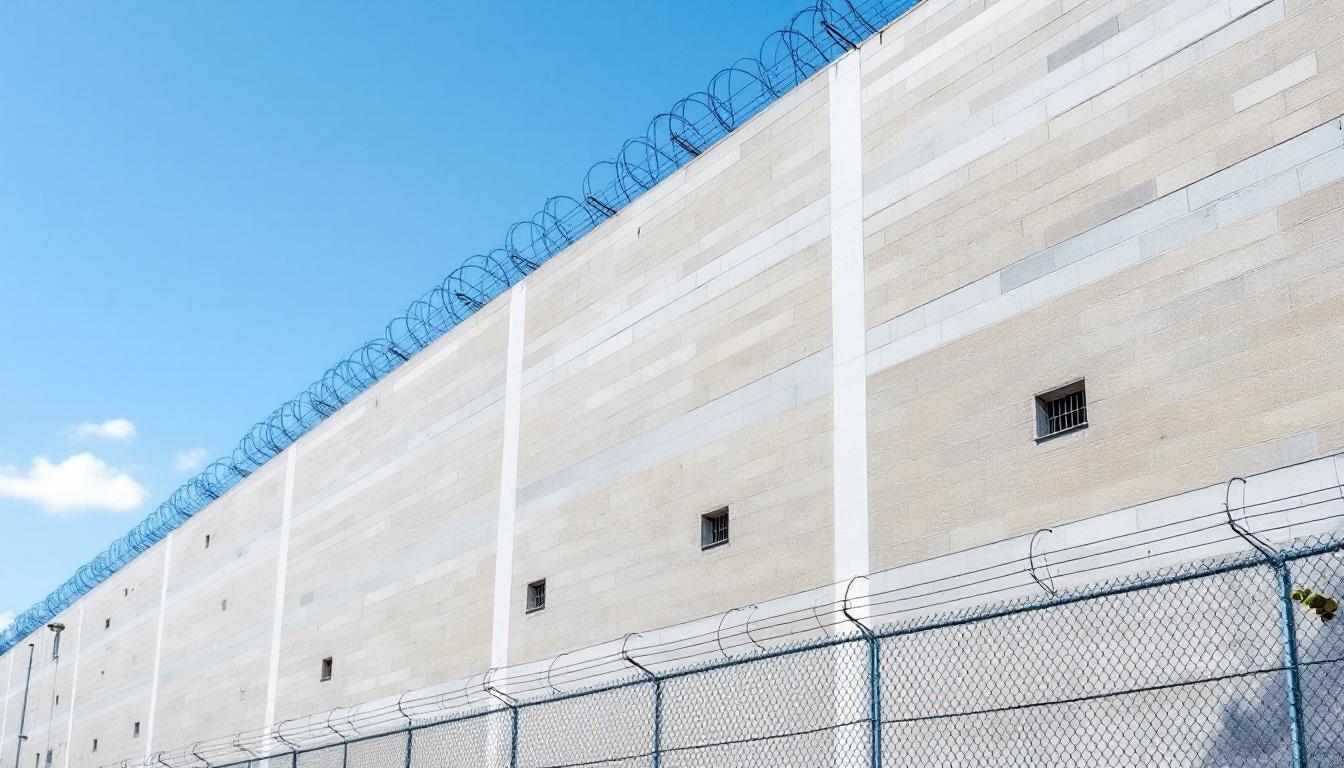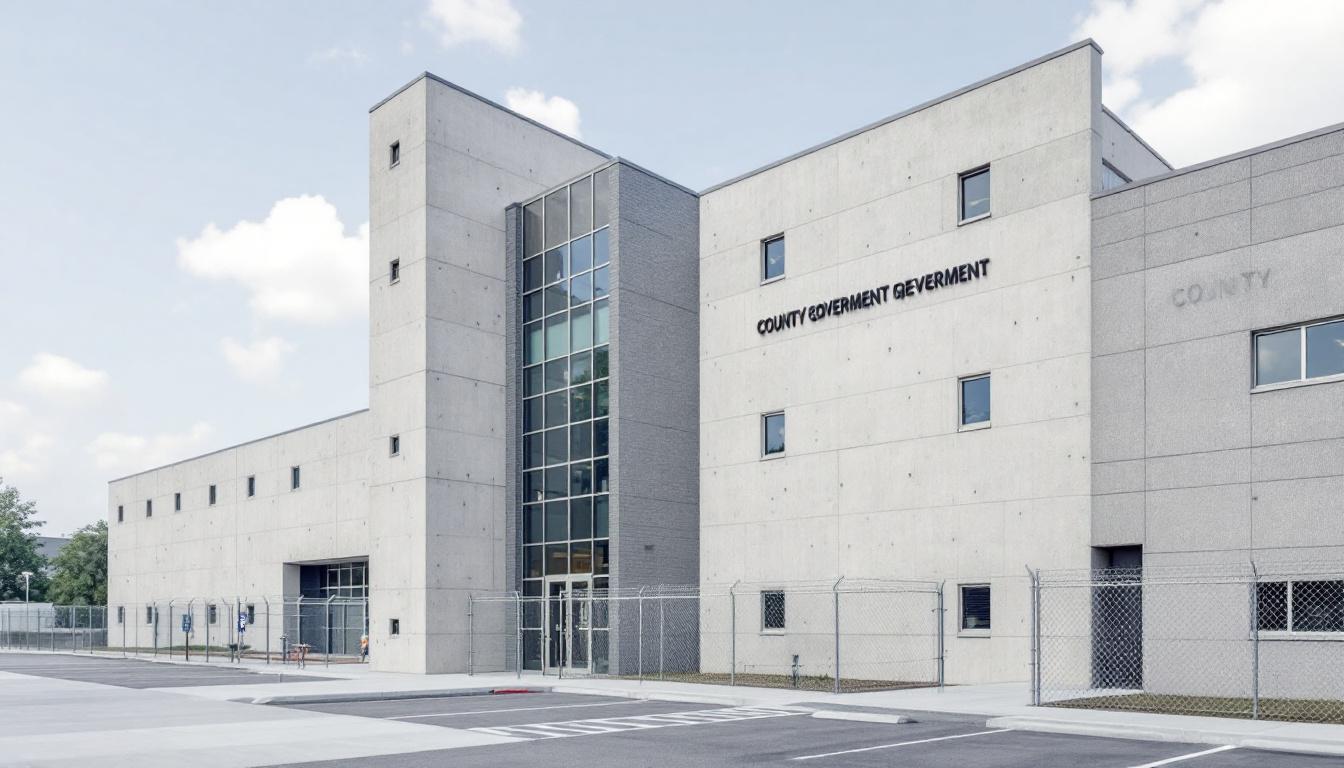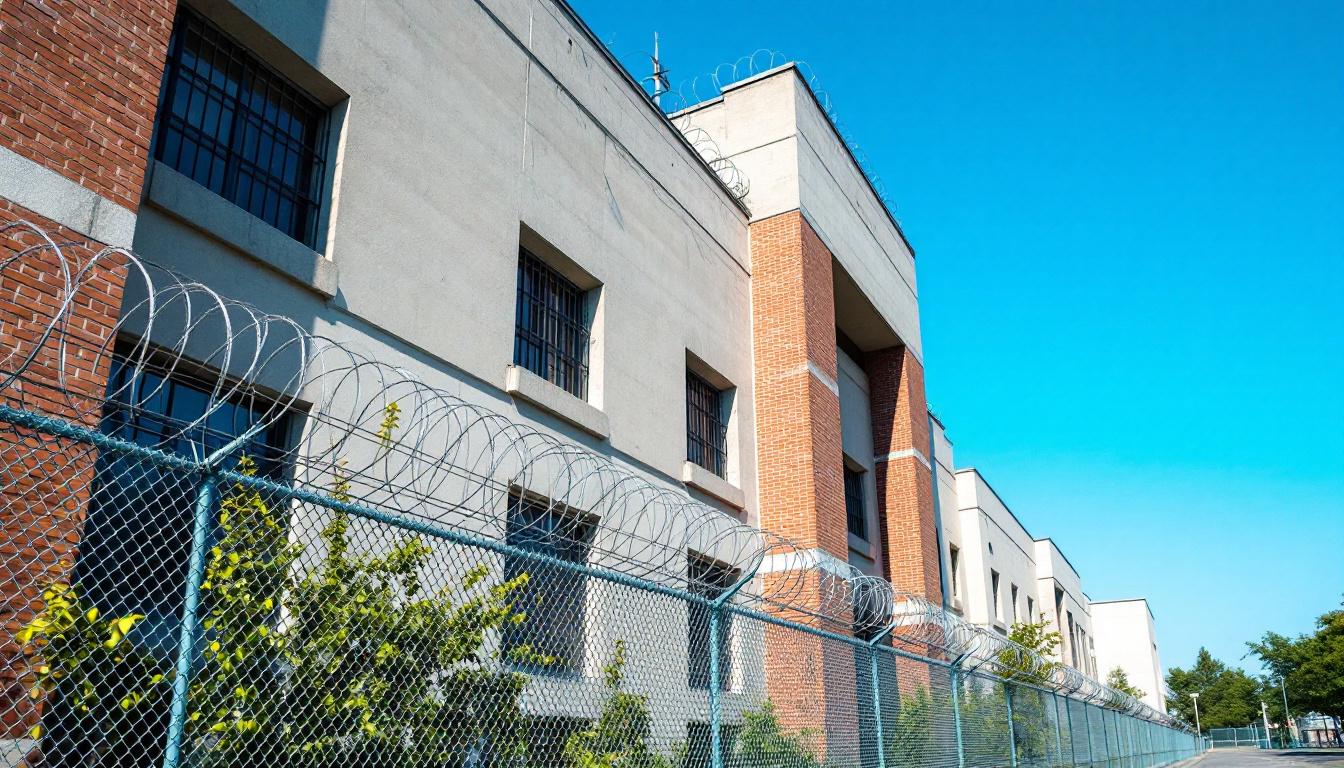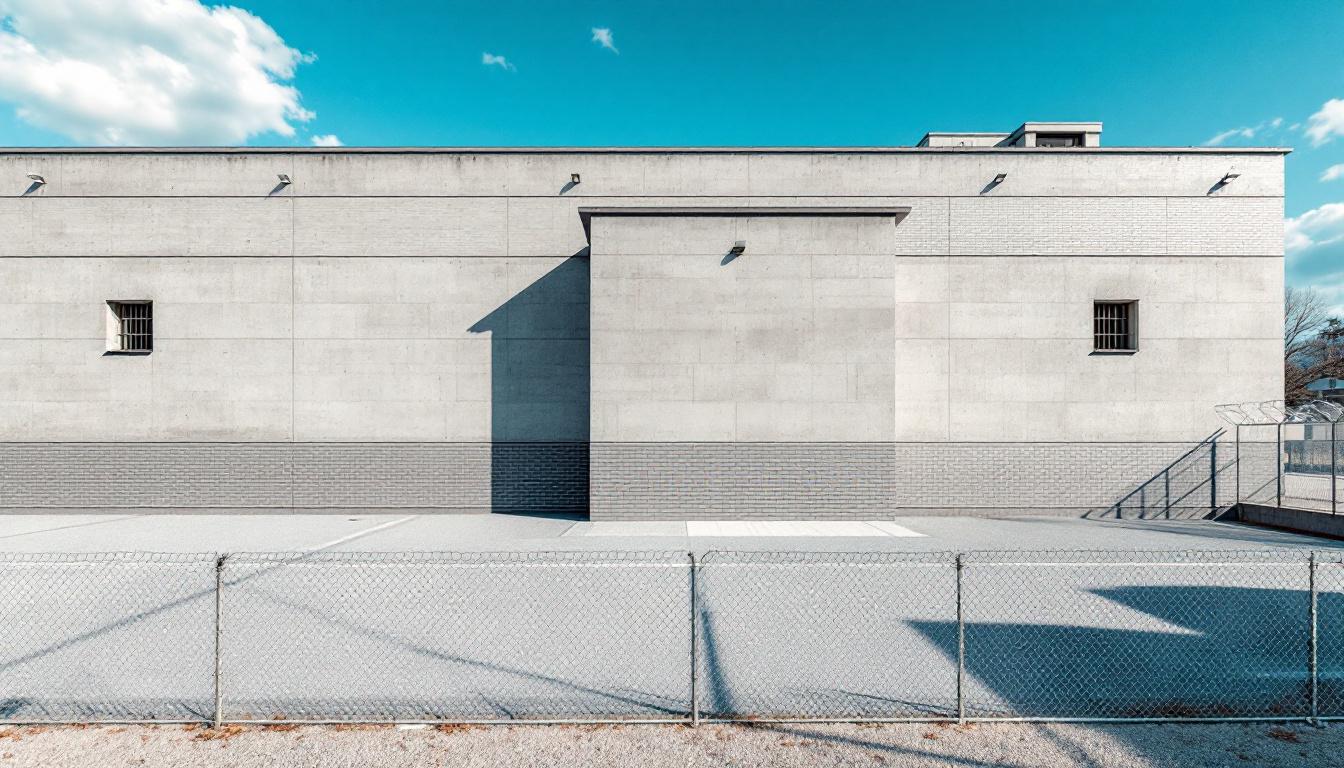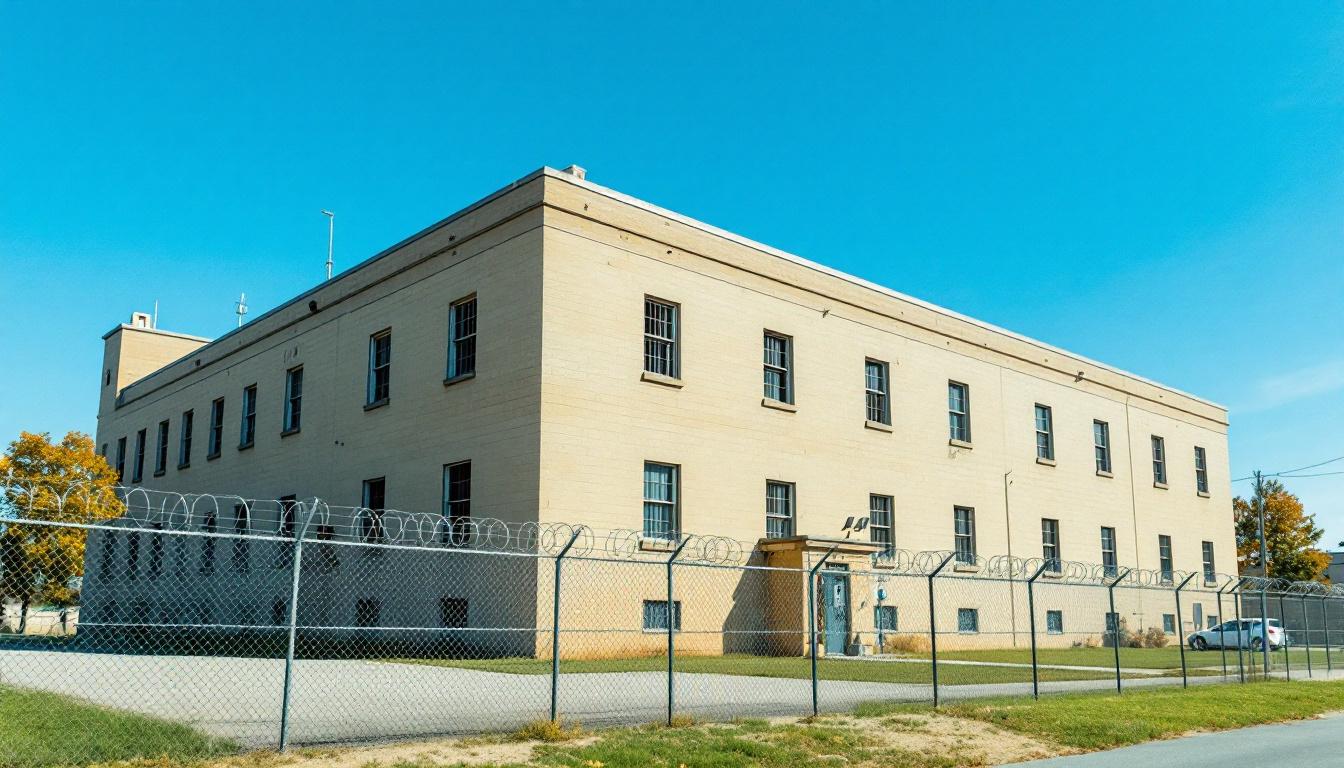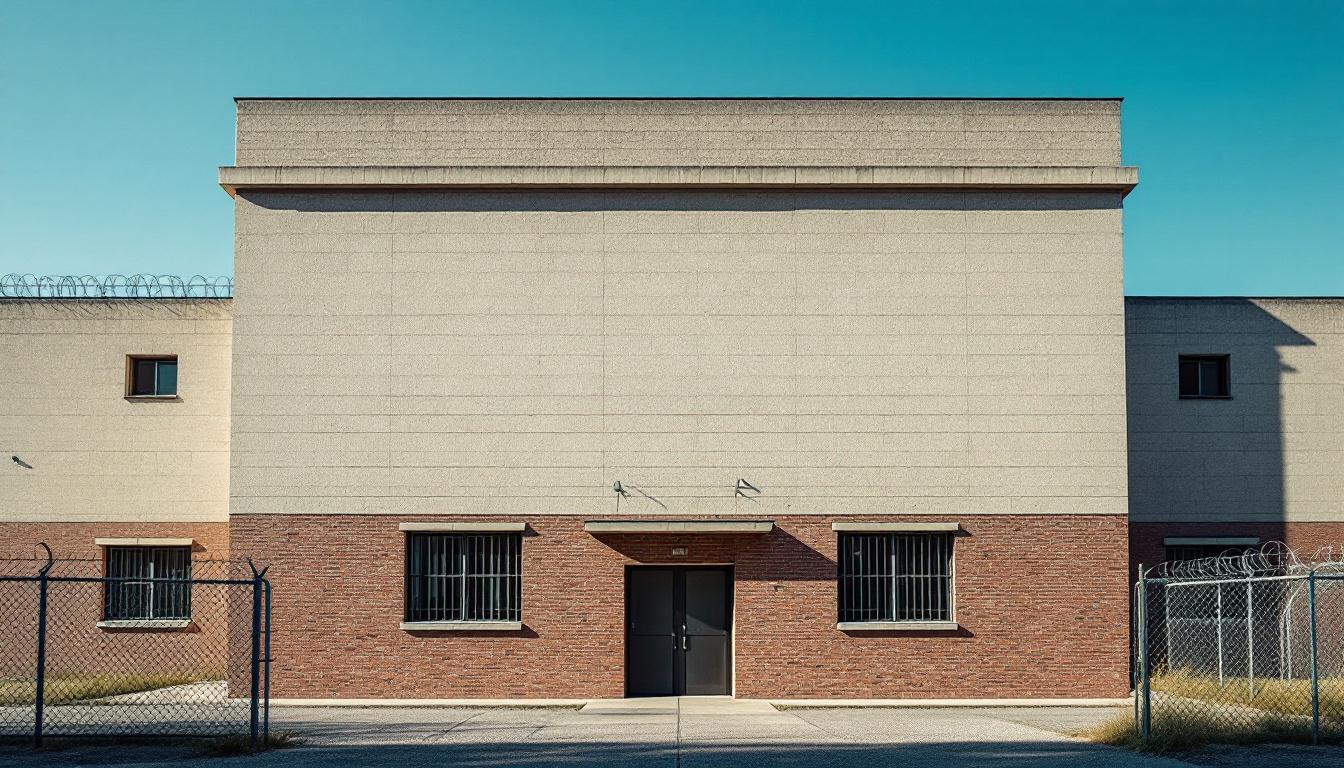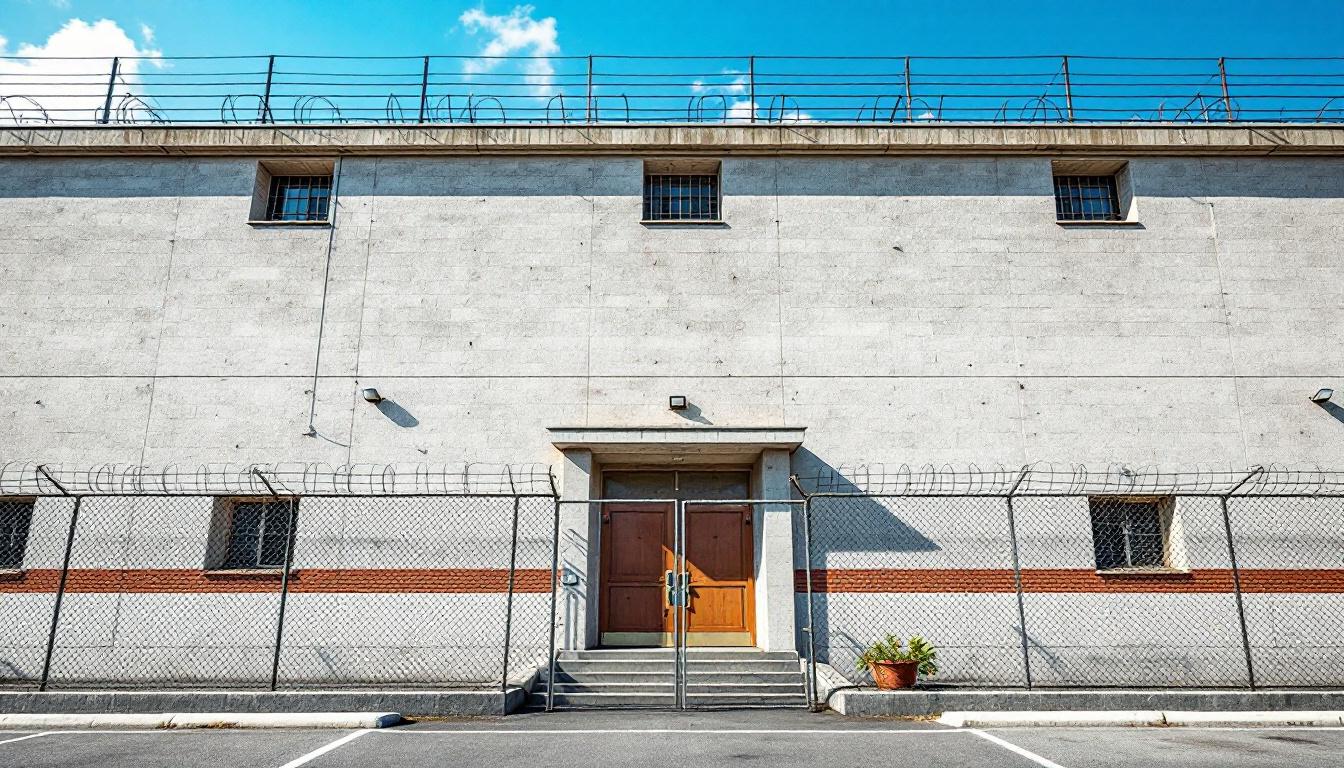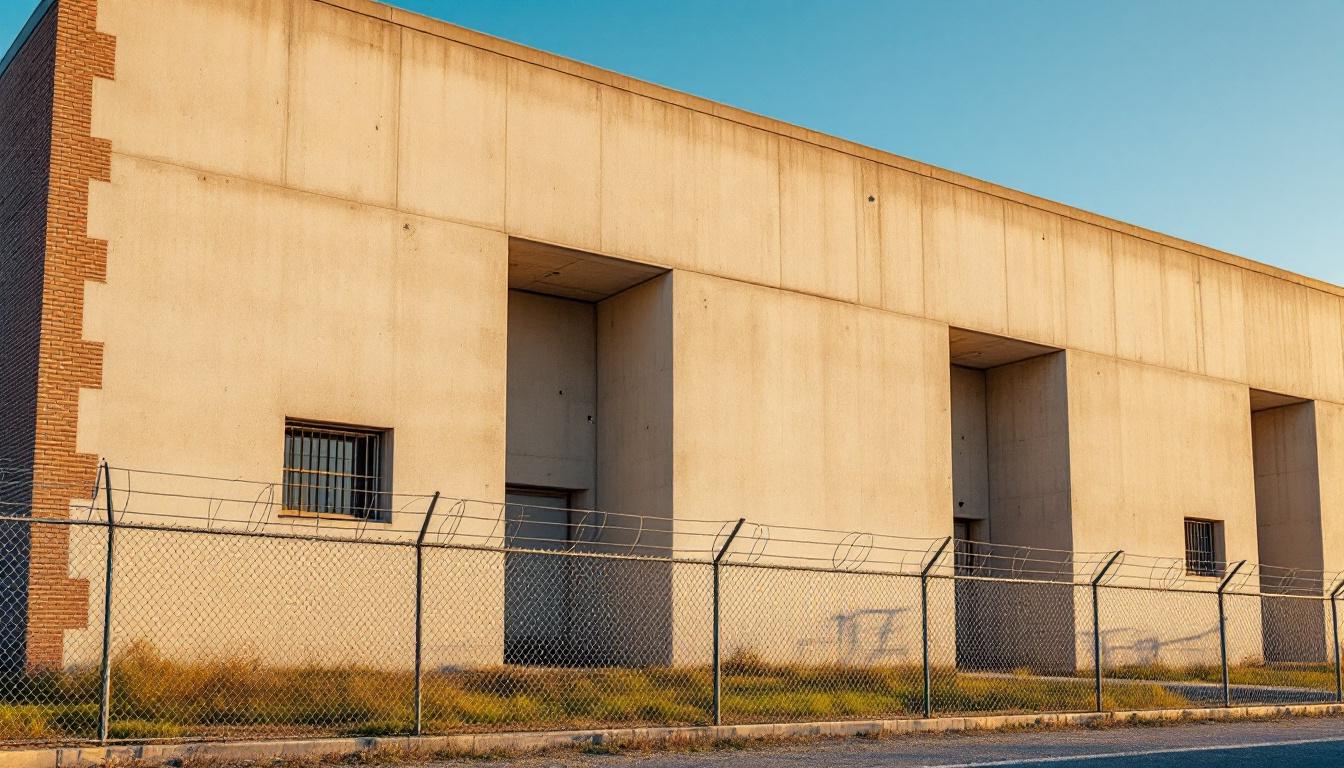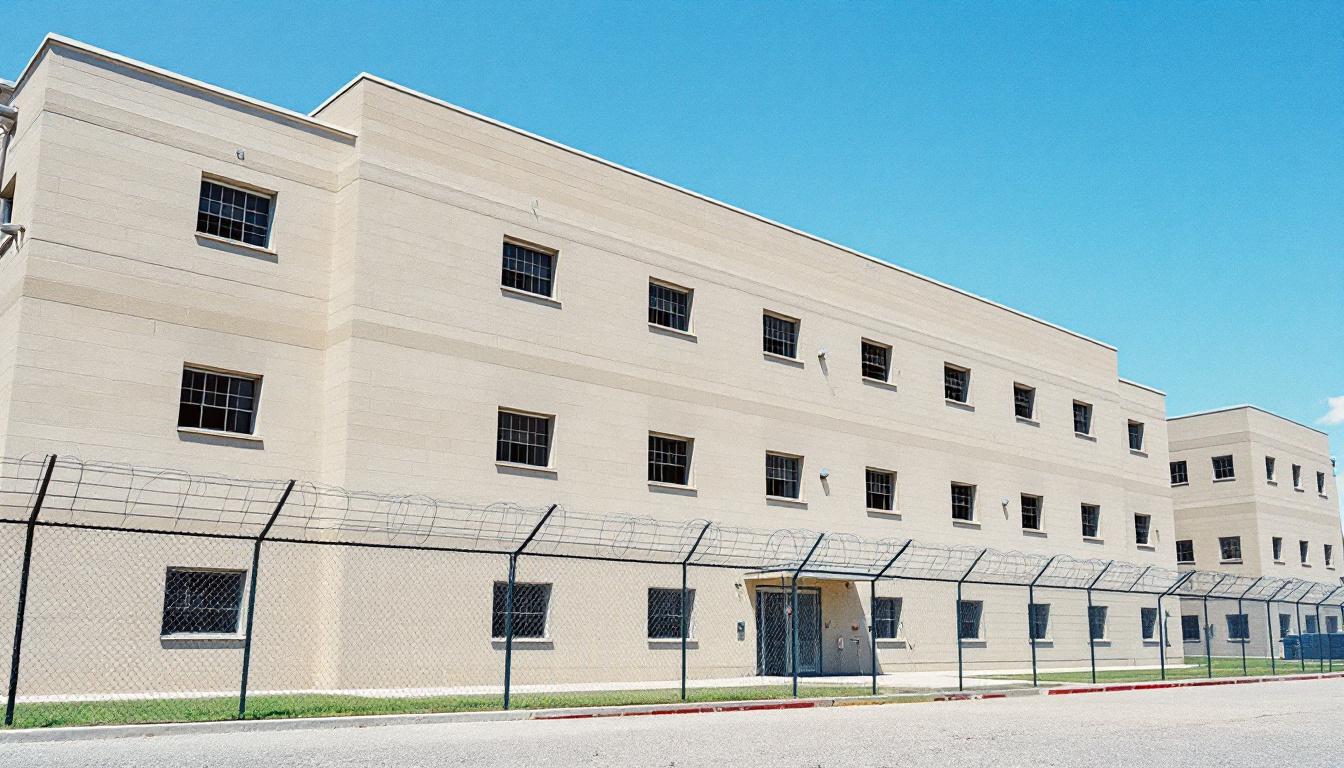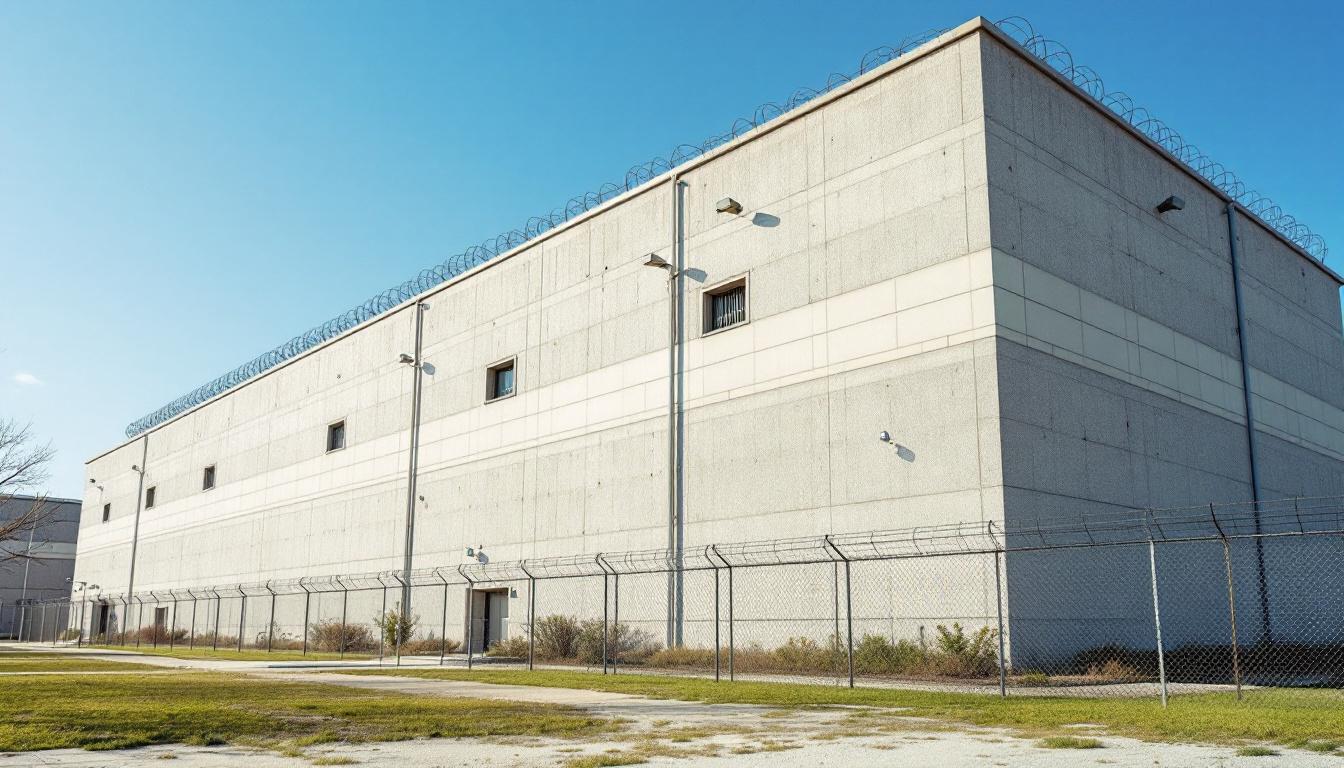
Quick Navigation
How to contact an inmate at TDCJ Christina Melton Crain Unit
This comprehensive guide will walk you through how to connect with an inmate at TDCJ Christina Melton Crain Unit. Follow the steps below to find an inmate and send letters and photos:
- Search for the inmate using our search tool below
- Create your account or log in to Penmate
- Write your message (up to 6,000 characters)
- Send instantly - inmates receive printed copies daily
Find an Inmate
Search for an inmate to start communicating today
Tip: You can search by first name, last name, or inmate ID number
To contact a person at TDCJ Christina Melton Crain Unit start by searching for the person on the official facility website. Perform a search by following these steps:
- Step 1: Enter their first name and last name into the search form and click "Search"
- Step 2: Locate their inmate record
- Step 3: Write down their Inmate ID and any housing information provided
Important! Be sure to enter the person's full name. Nicknames should not be used.
How to Send Messages to Inmates

You can use your phone or computer to send emails, letters, and photos to an inmate. Messages are sent electronically to inmate tablets or kiosks at the facility. If you would like to send a message, start by searching for an inmate at TDCJ Christina Melton Crain Unit.
Sending Photos and Postcards

A great way to send love and support to a loved one at TDCJ Christina Melton Crain Unit is to send photos and postcards. It only takes a few minutes to send photos from your phone and it makes a huge difference. You can also mail postcards with words of support and inspiration, or design your own postcard for special moments like birthdays and holidays.
Important! Be sure not to send any explicit photos or they may not be approved by the facility. You can also use a photo printing app like Penmate to make sure your photos are printed at the correct size (4x6 or 3x5) and are mailed according to the rules and regulations of TDCJ Christina Melton Crain Unit.
Frequently asked questions about TDCJ Christina Melton Crain Unit
-
How long does it take to deliver a message?
If you're sending an email message your letter is usually delivered within 24-48 hours. For messages sent via mail you should expect delivery within 3-7 days. All messages will need be approved by TDCJ Christina Melton Crain Unit.
-
How much does it cost to send a message to TDCJ Christina Melton Crain Unit?
You can send a message free using your phone or mail a message via USPS for the price of a $0.60 stamp and envelope. You can also purchase credits or e-stamps from services starting at $1.99.
-
What services can I use to contact an inmate at TDCJ Christina Melton Crain Unit?
Penmate
You can use Penmate to send letters and photos to an inmate from your phone. It's an easy way to stay in touch during your loved one's incarceration. Use the inmate locator to find an inmate's location and contact information, then you can send messages within a few minutes.
Securus messaging
Securus may be another option for communicating with an inmate at TDCJ Christina Melton Crain Unit. You can create a friends and family account and purchase credits to send messages. All messages will be reviewed and must be approved by the facility.
JPay
Some county jails and state prisons may support sending messages with JPay. You must register an account with the system, find your loved one, and purchase stamps to send messages. For some locations you can also attach photos.
Smart Jail Mail
You may also check if Smart Jail Mail is available at TDCJ Christina Melton Crain Unit. Smart Jail Mail is operated by Smart Communications and has contracted with some state and county jails. After purchasing credits, your messages and photos are sent to the facility, printed out, and then handed out to your loved one.
-
What is the mailing address of TDCJ Christina Melton Crain Unit?
Mailing address:
TDCJ Christina Melton Crain Unit
1401 State School Rd
Gatesville, TX 76599
Phone: (254) 865-8431Business hours:
- Monday: Closed
- Tuesday: Closed
- Wednesday: Closed
- Thursday: Closed
- Friday: Closed
- Saturday: 8:00 AM – 5:00 PM
- Sunday: 8:00 AM – 5:00 PM
-
What are the visiting hours at TDCJ Christina Melton Crain Unit?
Visiting hours at TDCJ Christina Melton Crain Unit vary by housing unit and security level. Generally, visits are scheduled on weekends and holidays, with some facilities offering weekday visits. Contact the facility directly at (254) 865-8431 or check their website for the current visiting schedule. Visits typically last 30-60 minutes and must be scheduled in advance.
-
What items are prohibited when sending mail to TDCJ Christina Melton Crain Unit?
Prohibited items typically include: cash, personal checks, stamps, stickers, glitter, glue, tape, staples, paperclips, polaroid photos, musical or blank greeting cards, hardcover books, magazines with staples, and any items containing metal or electronics. Only send letters on plain white paper with blue or black ink. Photos must be printed on regular photo paper (no Polaroids). Always check with TDCJ Christina Melton Crain Unit for their specific mail policies.
-
How do I send money to an inmate at TDCJ Christina Melton Crain Unit?
You can send money to an inmate at TDCJ Christina Melton Crain Unit through several methods: 1) Online using JPay, Access Corrections, or the facility's approved vendor, 2) Money orders mailed directly to the facility with the inmate's name and ID number, 3) Kiosks located in the facility lobby, or 4) Over the phone using a credit or debit card. Fees vary by method, typically ranging from $2.95 to $11.95 per transaction.
-
Can I schedule a video visit with an inmate at TDCJ Christina Melton Crain Unit?
Many facilities now offer video visitation as an alternative to in-person visits. At TDCJ Christina Melton Crain Unit, video visits may be available through services like Penmate, Securus Video Connect, GTL, or ICSolutions. Video visits typically cost $10-20 for 20-30 minutes and must be scheduled in advance. You'll need a computer or smartphone with a camera and reliable internet connection. Contact the facility for their specific video visitation policies and approved vendors.
-
What identification do I need to visit an inmate at TDCJ Christina Melton Crain Unit?
All visitors must present valid government-issued photo identification such as a driver's license, state ID, passport, or military ID. Minors must be accompanied by a parent or legal guardian who can provide the minor's birth certificate. Some facilities require visitors to be on the inmate's approved visitation list, which may require a background check. Contact TDCJ Christina Melton Crain Unit for specific ID requirements and visitor approval procedures.
-
How can I find out an inmate's release date?
To find an inmate's release date at TDCJ Christina Melton Crain Unit, you can: 1) Use the online inmate search tool if available, 2) Call the facility's records department, 3) Contact the inmate's case manager or counselor, or 4) Have the inmate provide this information during a call or visit. For privacy reasons, some facilities only release this information to immediate family members.
Facility Overview
Contact Information
TDCJ Christina Melton Crain Unit1401 State School Rd
Gatesville, TX 76599
Phone: (254) 865-8431
Official Website
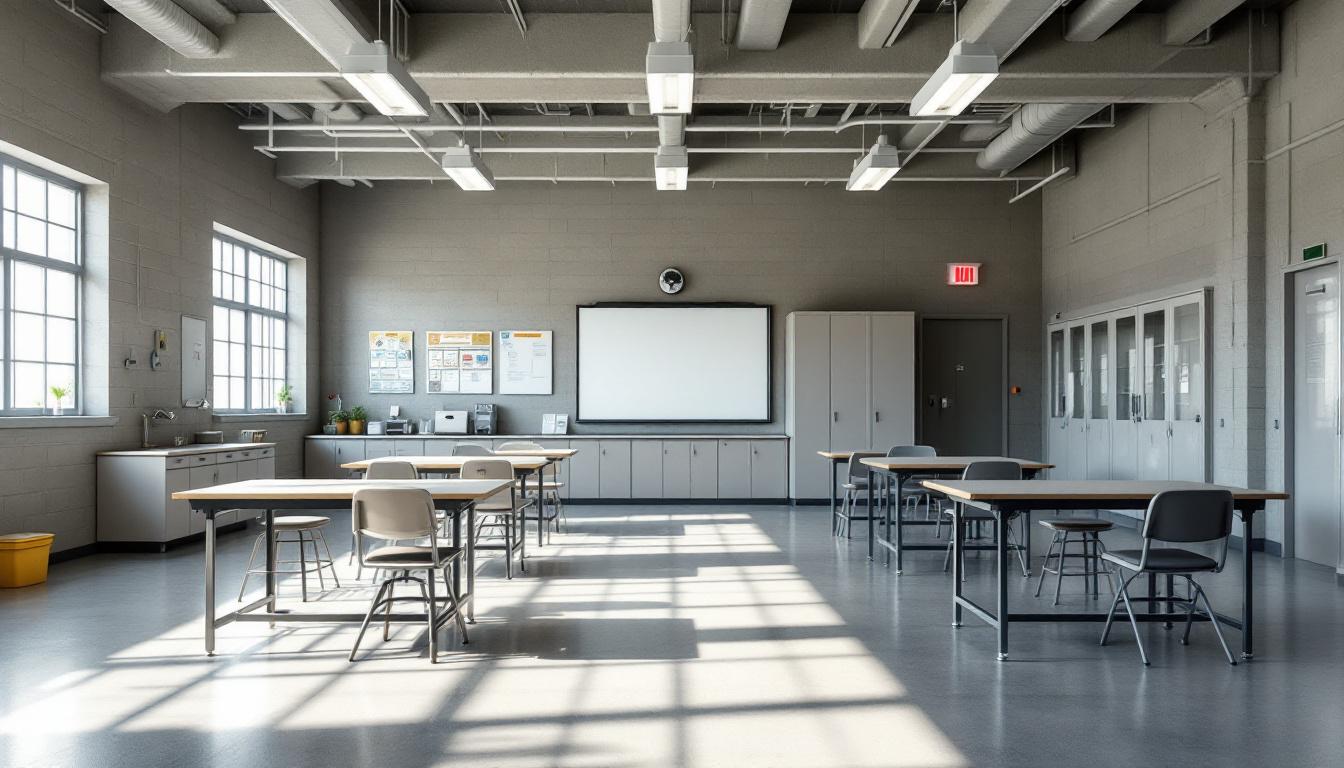
About TDCJ Christina Melton Crain Unit
Dallas County's correctional landscape receives essential support through the operational framework of the Christina Melton Crain Unit, TX, which maintains its commitment to serving both the incarcerated population and the broader community's safety needs. This TX correctional facility functions as an integral component within the state's comprehensive correctional system, typically housing individuals who require secure custody while participating in various rehabilitative programming designed to address underlying factors that may contribute to criminal behavior.
The facility generally provides inmates services that may include educational opportunities, vocational training programs, and substance abuse treatment initiatives, recognizing that effective rehabilitation often requires a multifaceted approach to address diverse individual needs. Located within the Dallas metropolitan area, the correctional facility typically maintains connections to community resources and support systems that can facilitate successful reintegration upon release. Mental health services and medical care are generally available to address the comprehensive wellness needs of the incarcerated population, while security protocols ensure the safety of both residents and staff members.
Within Texas's broader correctional framework, the Christina Melton Crain Unit serves as one of numerous facilities working toward the dual objectives of public safety and offender rehabilitation. The institution may offer various programming options that could include life skills development, anger management courses, and pre-release preparation services designed to support successful community reentry. Through its operations in the Dallas region, the facility contributes to the state's ongoing efforts to balance accountability measures with evidence-based practices aimed at reducing recidivism and promoting positive behavioral change among those in its custody.
Programs & Services
Personal transformation through structured rehabilitation forms the cornerstone of the comprehensive service delivery at Christina Melton Crain Unit. The facility's approach emphasizes holistic development, recognizing that meaningful change occurs when inmates have access to diverse opportunities that address both practical skills and underlying challenges. This philosophy permeates throughout the institution's various services, creating an environment where participants can develop the tools necessary for successful community reintegration while addressing personal barriers that may have contributed to their incarceration.
Educational and vocational services typically constitute a significant component of the facility's rehabilitation framework. Vocational training opportunities may provide inmates with marketable skills in various trades, enabling them to develop competencies that translate directly into employment prospects upon release. These hands-on learning experiences often emphasize both technical proficiency and workplace readiness, helping participants understand professional expectations and develop the confidence needed to pursue legitimate career paths in their communities.
Additionally, the facility's support infrastructure encompasses both therapeutic interventions and community-building initiatives. Dual diagnosis treatment services may address the complex intersection of mental health and substance abuse issues, providing specialized care for inmates facing these dual challenges. Work programs often serve multiple purposes, offering practical experience while contributing to facility maintenance operations, thereby instilling a sense of responsibility and accomplishment. Faith-based initiatives and religious services typically provide spiritual support and community connection, creating additional pathways for personal reflection and growth that complement the facility's broader rehabilitation objectives.
Daily Life & Visitation
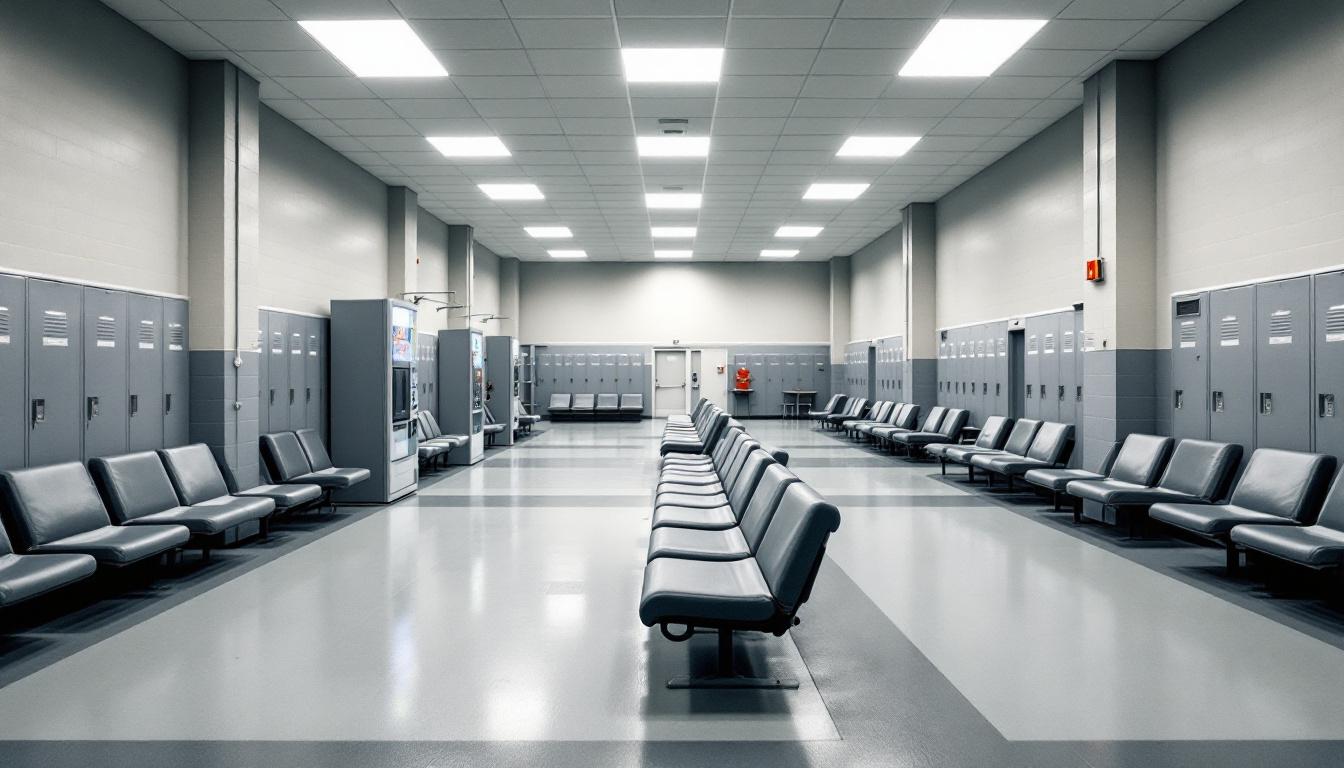
The concrete walls and steel doors of the housing units create a controlled environment where inmates at Christina Melton Crain Unit navigate their daily existence within clearly defined boundaries. At present, the facility operates on a structured schedule that governs nearly every aspect of daily life, with inmates actively participating in count times, meal periods, and designated activities throughout each day. The regimented nature of institutional living typically begins before dawn with morning count procedures, followed by breakfast service and the commencement of work assignments or programming activities that provide essential structure to each day.
Living accommodations generally consist of shared cells or dormitory-style housing units, where inmates adapt to limited personal space and the constant presence of others. Additionally, the dining arrangements involve scheduled meal times in common areas, where inmates typically receive three meals daily that meet basic nutritional requirements. While personal property remains restricted to essential items and approved commissary purchases, inmates usually have access to basic hygiene products and limited personal belongings that help maintain some sense of individual identity within the institutional setting.
The facility generally provides various recreational opportunities and structured programming schedules designed to support rehabilitation and personal development. Inmates may participate in educational classes, vocational training programs, or religious services, depending on availability and individual eligibility. Additionally, visitation policies typically allow for regular contact with family members and approved visitors, while telephone access and correspondence services help maintain crucial connections to the outside world. Work assignments within the facility often include kitchen duties, maintenance tasks, or administrative support roles that provide inmates with daily structure and may offer valuable skills for eventual reintegration into the community.
Ready to Connect?
Start communicating with your loved one today
Search for an Inmate
